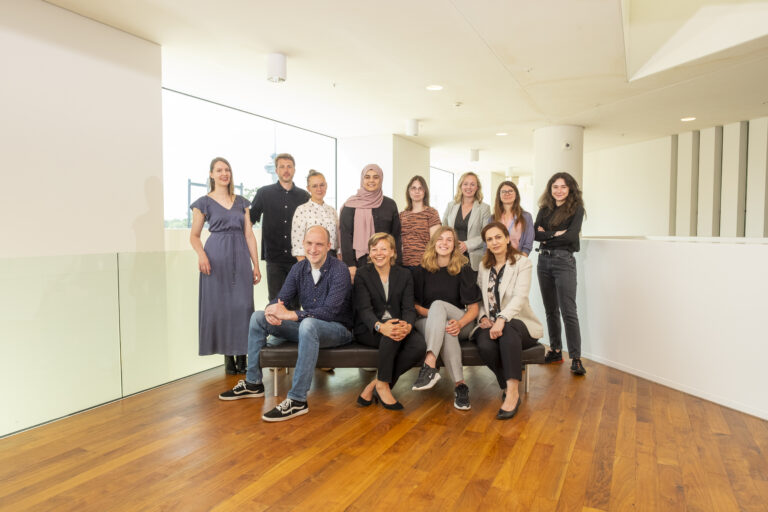Medical Decision-making
Medical decision-making aims to support patients, clinicians and healthcare policymakers in making the best decisions about diagnostic, therapeutic and other medical interventions.
For many interventions in healthcare it remains unclear what the effectiveness is. In addition, optimal care may also depend on patient characteristics and preferences. Further, quality of care varies substantially between providers. Our mission is to contribute to optimal evidence-based and personalised decisions in healthcare through outstanding quantitative research. We work on the development of quantitative methods to inform decisions. These include prediction modelling, methods for causal inference from observational data, measuring quality of care, and comparative effectiveness research (CER). For example, we develop statistical methods to study the effectiveness of treatments based on between-hospital variation in treatment and outcomes. Another example is prediction modelling to predict treatment benefit in individual patients. We apply our methods in collaboration with multiple clinical groups within and outside Erasmus MC to directly improve patient care. For example, within Erasmus MC we collaborate with various clinical departments and lead the Academic Centre for Quality of Care and Outcomes of Erasmus MC. With researchers from Erasmus University we work on ways to create a more sustainable and effective healthcare system in the programme ‘Smarter choices for better health’. In the national CONTRAST consortium, we aim to improve the effectiveness and safety of acute treatment for stroke. In CENTER-TBI (an international project funded by the European Union) we aim to optimise treatment for patients with traumatic brain injury.
Traumatic brain injury (TBI) represents a vast (but insufficiently recognised) challenge for public health. TBI is the leading cause of mortality in young adults, and a major cause of death and disability across all ages worldwide. In high-income countries, the number of elderly people with TBI is increasing (mainly due to falls), while in low-income and middle-income countries, the burden of TBI from road traffic incidents is increasing. However, systems of care for people with TBI vary greatly, often with discontinuity and discrepancies in the chain of care. Strong evidence to support treatment guidelines and recommendations is scarce, current treatment strategies vary highly between regions and hospitals and insufficiently target the needs of individual patients. In 2019 we developed a set of quality indicators for TBI. The set was developed based on a Delphi procedure with international experts and subsequently applied and validated in the largest prospective TBI study to date: CENTER-TBI. Both the Delphi study and the validation were published in the top Critical Care journal Critical Care and will be implemented in TBI quality registries across Europe.
Huijben JA, Wiegers EJA, de Keizer NF, Maas AIR, Menon D, Ercole A, Citerio G, Lecky F, Wilson L, Cnossen MC, Polinder S, Steyerberg EW, van der Jagt M, Lingsma HF; Delphi panel.Development of a quality indicator set to measure and improve quality of ICU care for patients with traumatic brain injury. Crit Care. 2019 Mar 22;23(1):95. doi.org/10.1186/s13054-019-2377-x
Huijben JA, Wiegers EJA, Ercole A, de Keizer NF, Maas AIR, Steyerberg EW, Citerio G, Wilson L, Polinder S, Nieboer D, Menon D, Lingsma HF, van der Jagt M; CENTER-TBI investigators and participants for the ICU stratum. Quality indicators for patients with traumatic brain injury in European intensive care units: a CENTER-TBI study. Crit Care. 2020 Mar 4;24(1):78. doi: 10.1186/s13054-020-2791-0
- CENTER-TBI: A prospective longitudinal observational study on traumatic brain injury
- CONTRAST: Collaboration for New Treatments of Acute Stroke
- * The Predictive Approaches to Treatment effect Heterogeneity (PATH) Statement – guidance on predictive approaches to analyze trials for treatment effect heterogeneity
van Leeuwen N, Lingsma HF, Mooijaart SP, Nieboer D, Trompet S, Steyerberg EW. Regression discontinuity was a valid design for dichotomous outcomes in threerandomized trials. J Clin Epidemiol. 2018 Jun;98:70-79. doi:10.1016/j.jclinepi.2018.02.015.
Kent DM, Steyerberg E, van Klaveren D. Personalized evidence based medicine:predictive approaches to heterogeneous treatment effects. BMJ. 2018 Dec10;363:k4245. doi: 10.1136/bmj.k4245.
Venema E, Lingsma HF, Chalos V, Mulder MJHL, Lahr MMH, van der Lugt A, van Es ACGM, Steyerberg EW, Hunink MGM, Dippel DWJ, Roozenbeek B. Personalized Prehospital Triage in Acute Ischemic Stroke. Stroke. 2019 Feb;50(2):313-320. doi:10.1161/STROKEAHA.118.022562.
van Klaveren D, Balan TA, Steyerberg EW, Kent DM. Models with interactions overestimated heterogeneity of treatment effects and were prone to treatmentmistargeting. J Clin Epidemiol. 2019 Oct;114:72-83. doi:10.1016/j.jclinepi.2019.05.029.
Volovici V, Steyerberg EW, Cnossen MC, Haitsma IK, Dirven CMF, Maas AIR,Lingsma HF. Evolution of Evidence and Guideline Recommendations for the MedicalManagement of Severe Traumatic Brain Injury. J Neurotrauma. 2019 Nov15;36(22):3183-3189. doi: 10.1089/neu.2019.6474.
Dijkland SA, Foks KA, Polinder S, Dippel DWJ, Maas AIR, Lingsma HF, Steyerberg EW. Prognosis in Moderate and Severe Traumatic Brain Injury: A Systematic Review of Contemporary Models and Validation Studies. J Neurotrauma. 2020 Jan1;37(1):1-13. doi: 10.1089/neu.2019.6401.
